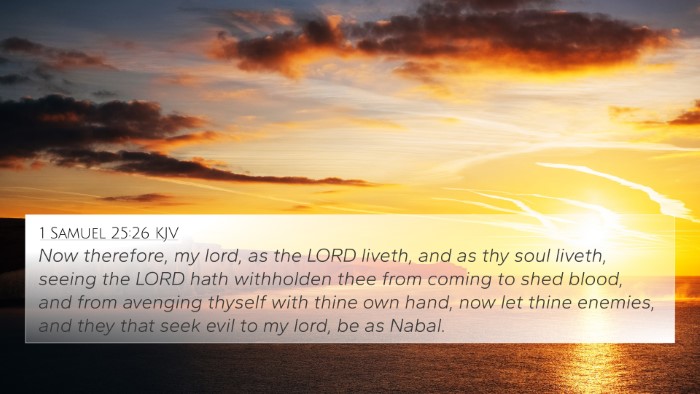Understanding Proverbs 31:12
Proverbs 31:12 states, "She will do him good and not evil all the days of her life." This verse encapsulates the essence of a virtuous woman, emphasizing her commitment to her husband and her dedication to bringing goodness and support to her family. Below, we delve into the meaning of this verse by synthesizing insights from respected public domain commentaries, including those by Matthew Henry, Albert Barnes, and Adam Clarke.
Summary of Proverbs 31:12
This verse is part of an acrostic poem that describes the ideal woman, emphasizing her moral strength and unwavering commitment to her family. The repeated notion of doing good signifies the woman's role as a source of positivity and support within her household.
Commentary Insights
Matthew Henry's Commentary
Matthew Henry emphasizes that a virtuous wife is characterized by her continuous efforts to promote her husband's wellbeing. Her actions are not situational but remain consistently positive, spanning every day of their lives together. Henry highlights that this commitment stems from her love and reverence for her husband, which protects the harmony of the home.
Albert Barnes' Notes
Albert Barnes further elucidates that to "do good" refers not merely to physical support but also to spiritual and emotional encouragement. A good wife fosters an environment where her husband feels secure and cherished, thus enabling him to thrive. Barnes also indicates that this principle extends beyond wifely duties to encompass the lastingly fruitful relationships found in any God-centered household.
Adam Clarke's Commentary
Adam Clarke interprets this verse as a declaration of faithfulness and loyalty. He notes that the statement “not evil” indicates an absence of malice or neglect, which contrasts sharply with the behaviors often depicted in the world. Clarke suggests that the relationship dynamics presented here set a benchmark for mutual respect and care, asserting that the ideal woman's goodness is reciprocated in kind.
Bible Verse Cross-References
To fully understand the implications of Proverbs 31:12, it is beneficial to explore related verses in Scripture. Below are Bible cross-references that enhance our understanding of this verse:
- Proverbs 31:10: "Who can find a virtuous woman? For her price is far above rubies." - This verse introduces the qualities of the virtuous woman described further in the chapter.
- Ephesians 5:25: "Husbands, love your wives, even as Christ also loved the church, and gave himself for it." - Highlights the importance of mutual love and support in marriage.
- Titus 2:4-5: "That they may teach the young women to be sober, to love their husbands, to love their children." - Emphasizes the role of women in nurturing their families.
- Proverbs 12:4: "A virtuous woman is a crown to her husband: but she that maketh ashamed is as rottenness in his bones." - Reflects the honor a good wife brings to her husband.
- 1 Peter 3:1: "Likewise, ye wives, be in subjection to your own husbands; that, if any obey not the word, they also may without the word be won by the conversation of the wives." - Suggests that a wife's conduct can influence her husband's spirituality.
- Colossians 3:18: "Wives, submit yourselves unto your own husbands, as it is fit in the Lord." - Discusses the role of submission as part of a caring relationship.
- Proverbs 14:1: "Every wise woman buildeth her house: but the foolish plucketh it down with her hands." - Illustrates the constructive role a woman plays in the family structure.
Thematic Connections
This verse’s thematic connections revolve around the virtues of loyalty, goodness, and the responsibilities of spouses, particularly within the framework of a marriage that honors God. Some thematic areas to consider include:
- Faithfulness: The dedication a good wife demonstrates to her husband can be likened to God's unwavering faithfulness to His people.
- Support and Encouragement: Similar to Barnabas in Acts 4:36, who is known as the "Son of Encouragement," a woman of virtue provides support that bolsters her husband's strength.
- Reciprocal Love: The mutual love between husband and wife reflects Christ's relationship with His Church as described in Ephesians 5.
Tools for Bible Cross-Referencing
Understanding and studying cross-references in the Bible can greatly enhance one’s comprehension of Scriptures. Suggested tools and methods include:
- Bible Concordance: A tool that lists words found in the Bible and their locations to aid in cross-referencing.
- Cross-Reference Bible Study: Engage with various translations and parallel passages to note similarities and differences.
- Bible Reference Resources: Access Bibles with built-in cross-references for deeper insights.
- Comprehensive Bible Cross-Reference Materials: Use books or software dedicated to cross-referencing Biblical texts.
Conclusion
Proverbs 31:12 serves as a profound reminder of the role a woman plays in nurturing and sustaining familial bonds through love and devotion. By exploring connected scriptures, one can gain invaluable insights into the expectations that come with marriage and family life. Through the teachings found in public domain commentaries, one can appreciate the depth of meaning within this verse while applying it to daily life.
By utilizing cross-referencing techniques, readers can explore the rich inter-Biblical dialogue present and gain a thorough understanding of how various Biblical texts relate to one another. Whether for personal edification, study groups, or sermon preparation, understanding these connections fosters a deeper appreciation of God's Word.




